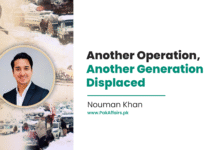Advertisement
Mental health challenges are very common, but not spoken much about. Besides, there is stigma attached to mental illnesses and disorders. This is so in spite of the fact that some 20-25 percent of all of us at one or more stages in life will experience challenges that need professional treatment. Alas, often clinics and hospitals have less expertise than needed, but most health workers do have some training and experience, and specialists also exist for further consultations – provided those with challenges and their families, admit that it cannot all just be swept under the carpet. Some mental health illnesses are inherited or congenital, but some don’t become visible in childhood, but come to the surface later in life, in the youth or early adulthood, or later. Some illnesses are caused by society and the environment one lives in, by difficult home and school years, by certain trauma and experiences in childhood, at work or neighbourhood, and so on. Children and young people can develop bad mental health because they have learning difficulties, social difficulties, experience mobbing, and so on, including how they look and feel, and how their sexual orientation is. Sometimes, children, especially girls, develop eating disorders, usually caused by dissatisfaction with appearance and indeed feeling of overweight. Boys more than girls may become noisy and misbehave; well, some may become withdrawn and too quiet. Generally, youth go through a problematic time, related to education and how well they score at tests and exams. They worry about job prospects, employment and unemployment, sexual issues, and many other things, indeed also how their parents and siblings are doing. It is important that parents, teachers and other adults, and siblings and age mates, talk about everyday existential issues – to the advantage for all, also those who are older and would feel guilty if young people around them develop mental health issues and drift away from mainstream society. Besides, older people also need support from young people and others so they don’t develop issues either. Luckily, in most or all societies people have in recent years become more aware of different forms of exclusion, mobbing and milder or serious forms of discrimination. Physical and mental abuse is also reported more often, but much is still kept secret. Sexual abuse is talked more about, but there is still a long way to go to protect children and youth the way they should be. When we suspect something could be wrong, we must try to find out, yes, discretely, but not just look the other way. We have a long way to go in society and the education institutions to give special education children fair and equal treatment, so they, too, can grow and live on their terms. Far too often, children with special education needs are stashed away. Even children with common reading and writing difficulties, such as dyslexia, are often ‘diagnosed’ as being slow. If a child suddenly changes behaviour, especially becoming more withdrawn and shy, it is often a sign of sexual or other abuse at home or in the community. The most important tool for teachers and other adults is to observe and be alert. Also, sometimes teachers are hard and unfair with children, and then collages and parents must take up such issues. Children must be taught to protect themselves and not be afraid of reporting issues they find uncomfortable, unfair, or directly wrong. Many social and psychological issues may be temporary and the person himself or herself, together with the immediate surroundings, can manage to sort them out without too much drama. If the stigma attached to mental health issues was less, and there was better competence in clinics and hospitals, and indeed in schools, the issues could be sorted out faster and better, benefitting those who need help and the society. I believe that in future the mental health issues will be given much more attention and that there will be a greater understanding for such issues and that they must be treated, not ignored and hidden. The world we live in is not going to become easier, rather more competitive and difficult. We need to prepare ourselves better for the life’s journey we all will go through – in schools, workplaces, religious associations, NGOs, and society at large. Health institutions must become much more professional and set aside funds not only for physical health but indeed also for mental health issues. It will cost some money since much needs to be improved. Yet, it will also save money for a country and local communities to have a population with better mental as well as physical health.
ATLE HETLAND
Email: [email protected]
Mobile (in Pakistan): 0348-568 1008




